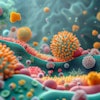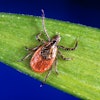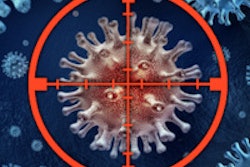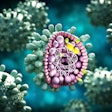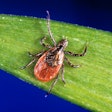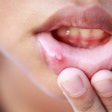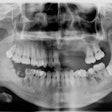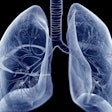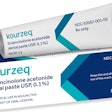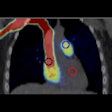
The little yellow pills that have boosted men's sex lives for the past decade may someday fight head and neck cancers and other diseases, according to Florida researchers. The erectile dysfunction drug tadalafil, commonly known as Cialis, can modulate the body's immune system, resulting in a new therapeutic strategy for head and neck squamous cell carcinoma (HNSCC), a new trial has shown.
 Donald Weed, MD, professor of otolaryngology at the University of Miami and the Head and Neck Site Disease Group leader at the Sylvester Comprehensive Cancer Center in Miami. Image courtesy of the University of Miami.
Donald Weed, MD, professor of otolaryngology at the University of Miami and the Head and Neck Site Disease Group leader at the Sylvester Comprehensive Cancer Center in Miami. Image courtesy of the University of Miami.HNSCC is often a fatal disease with high rates of recurrence, despite advances in treatment. A common feature of HNSCCs is their ability to suppress the immune system. One way they do this is by ramping up activity of cells known as suppressor cells that block the activity of immune cells that would otherwise attack the tumor, explained Donald Weed, MD, a professor of otolaryngology at the University of Miami (UM) and Head and Neck Site Disease Group leader at the Sylvester Comprehensive Cancer Center in Miami. Tadalafil seems to work in the opposite direction, freeing immune cells to fight the cancer.
"The way to think about it is, if you take your foot off the brake in a car, your car will go somewhere, but it will go very slowly. You have to have an accelerator to get where you want to go, so tadalafil is like taking the foot off the brake," Dr. Weed told DrBicuspid.com. "There are a host of other options for how you could potentially combine that with other treatments that would essentially be that one-two punch, to potentially make other treatments more effective and take advantage of the effect that tadalafil has."
His colleague Paolo Serafini, PhD, an assistant professor of microbiology and immunology at UM, began studying the effects of erectile dysfunction drugs on cancer while at Johns Hopkins Sidney Kimmel Comprehensive Cancer Center in 2005.
Tadalafil's effect on the immune system
HNSCC is an immunosuppressive disease and, by definition, it is exposed to the environment much more so than most other cancers are, Dr. Weed explained.
"There's a lot of inflammation of the immune system associated with these cancers, and how these tumors interact with the immune system is really important, so it's a good tumor model to evaluate this particular question," he said.
Tadalafil is a phosphodiesterase-5 (PDE5) inhibitor, which is why it is used for its vasodilation properties, but it's also important in other pathways, and it can interrupt various pathways by which cancer cells inhibit the immune system response, Dr. Weed noted.
Two important components of this defense against immune attack are myeloid-derived suppressor cells (MDSCs) and regulatory T cells (Tregs). The presence of MDSCs and Tregs at the tumor site or in the patient's blood can negatively affect patient outcomes by quelling the immune response to the cancer. Preclinical studies showed that PDE5 inhibitors, such as tadalafil, could suppress MDSCs and Tregs by modifying the tumor environment.
Dr. Weed and colleagues at the Sylvester center found that tadalafil increases CD8+T cells that boost immunity against squamous cells, resulting in minimized tumor growth, and they published the results of their trial earlier this year (Clinical Cancer Research, January 1, 2015, Vol. 21(1), pp. 39-48).
"Specifically, a short course of daily tadalafil treatment prior to surgery is sufficient to significantly reduce MDSCs and Tregs systemically and at the tumor site," Dr. Weed said. "The tumor defenses were reduced and those cytotoxic T cells could then form where otherwise they wouldn't be able to, and we could demonstrate them in the blood stream six weeks later."
Tadalafil's advantages and potential uses
Tadalafil is a good but not perfect drug from a cancer perspective, in that at higher doses it has some off-target effects that seem to negate the benefits, while at low doses it's not very effective, Dr. Weed said.
The drug now is now approved for treating HNSCCs, but the researchers are awaiting approval from the U.S. Food and Drug Administration (FDA) to use tadalafil in another trial, which will combine it with an antibiologic agent, an anti-MUC1 tumor vaccine.
The researchers now want to treat HNSCC patients who have recurred after previous radiation therapy, Dr. Weed said. The standard treatment is surgery to remove the cancer in the following cases:
- Patients have recurrence locally in the mouth and throat.
- The recurrence is in the neck.
- There is no sign of distant metastatic disease.
- The recurrence is resectable.
Patients with advanced-stage recurrence have a high risk of recurrence, and they have probably a 70% chance that their tumor will recur over three years, according to Dr. Weed.
“The big advantage is it's a safe drug and has very, very few side effects”
"If 70% of those patients recur, your complete response is really not complete -- somewhere there's still cancer," Dr. Weed noted. "But if you've taken out a big bulk of cancer and reduced it to microscopic disease, that's where an immune therapy might be very effective. So we're going to combine tadalafil with an antitumor vaccine."
He sees many patients whose HNSCC recurs after chemotherapy and radiation therapy has been used as the primary treatment.
"Unlike other patient populations where new therapies are tested, these are patients still being treated for cures, as opposed to patients who have failed everything and are at their last options and they're finally given access to an experimental therapy," Dr. Weed said. "So it's a patient population that doesn't have a lot of options."
Next phase of clinical trials
The Miami research team is now preparing to open a clinical trial for patients with stage III or IV recurrence of HNSCC who are undergoing surgery as treatment. Patients will receive a short course of tadalafil and the anti-MUC1 vaccine prior to surgery, then four courses after surgery, Dr. Weed said. The aim is to demonstrate that this therapeutic strategy can effectively prime the body's immune response against these cancers and hopefully reduce recurrence rates among patients. An added benefit is to promote a condition by which the body would recognize the cancer cells as foreign should they recur, even years after initial treatment, and the immune system would destroy them before they could develop into clinically significant tumor growth.
Dr. Weed is optimistic that tadalafil could someday be used in place of or in conjunction with other traditional, more aggressive forms of treatment such as radiation therapy. Not every cancer has the same kind of immunosuppressive characteristics, he noted, so tadalafil is not necessarily generalizable to other diseases, he said.
Breakthroughs in cancer treatment are incremental steps, Dr. Weed noted.
"This is not a eureka moment, where we can now start controlling cancers right and left," he said. "However, the big advantage is it's a safe drug and has very, very few side effects. It could be put into practice sooner rather than later, whereas other investigational drugs take so much time to come into the clinic."
